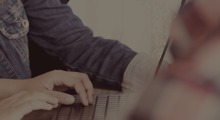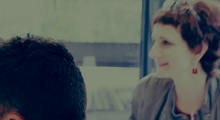Searching for a job differently: winning strategies and...

Zoom on this Kedger at the service of patients and healthcare providers during the crisis!
During his shifts as a volunteer nurse's aide at the Covid-19 emergency room in Sélestat, Mathieu Gardin (founder of the start-up Oxycar), became aware of the distress experienced by patients who are "isolated, with no connection to the outside world", as well as to the plight of doctors who are prey to bureaucratic constraints, such as "hours of care are lost by having to draw up schedules manually". To help them, he and his teams have set up a process to facilitate the arrangement and delivery of tablets to hospitalised patients in coordination with the Simplon Foundation (which specializes in digital solidarity). They also developed fully-automated Excel spreadsheets "that save almost 29 hours compared to the 30 hours spent today" to help doctors in their administrative tasks.

From Tech to Nursing
26-year-old entrepreneur Mathieu Gardin, is first and foremost an Alsatian who lives in Obernai, Alsace, which was one of the first locales hit by Covid-19. He became aware of the extent of the epidemic very early on through his neighbour who works in the Sélestat-Obernai hospital emergency room. "She told me about their difficult working conditions because, in addition to the exponential number of patients, the hospital had to cope with a massive increase in the number of nursing staff, who were themselves contaminated and sick". Without hesitation, this former student nurse, who is also a long-time White Cross volunteer, took out his scrubs to help in the Covid-19 emergency room.
The reality on the ground impelled him to publish a post on Linkedin in mid-March. While wearing nursing clothing to encourage people to lend a hand, he stated, "The message is simple. We have suffered like never before. We are currently limited as much in the amount of equipment available as we are in the number of nursing staff still standing, and especially since the walls that cannot be pushed back indefinitely [...]. We need help. If you know people who, or if you are like me, have a medical background with the care skills, please pass on this message. The wave is coming and it is going to hurt.”
From Emergency to Social Connection: Providing tablets for patients in the hospital
Three times a week, for 12 hours a day - not counting nights, Mathieu Gardin found himself on the front line and exposed to the distress of patients who are "alone and without any connection to their loved ones".
At the same time, as part of the national #gardonslelien operation, the Simplon foundation (in partnership with Microsoft), who wanted to provide tablets to patients with coronavirus so they could communicate with their loved ones, asked him help get the tablets delivered throughout France by means of his carpooling company Oxycar.
Being aware of the needs in the hospital, Mathieu immediately called on his teams who, even though they are currently not working, are all there to help. "We are all unemployed because right now carpooling is not popular." In the end, 50 tablets were prepared and distributed by Oxycar within a few days.

From emergency to administrative reality: making it easier for doctors with adapted management tools
Occupied in the centre of the hospital's emergency room, Mathieu Gardin noted the weight of administrative tasks: "Doctors, interns, nurses' assistants, student supervision, etc., organising the schedules of all the people involved is complex. A senior doctor devotes more than 30 hours a month to drawing up well-organised schedules". It’s an impressive waste of time and really frustrating for them.
To provide them relief, again with the help of his teams, Mathieu Gardin, brought them with a simple and quick solution by developing fully-automated Excel spreadsheets "that lets them do everything in one hour instead of 30 - 29 hours they can devote themselves to their patients.
And tomorrow...
"Today, one of the main problems of the public hospital sector is the lack of organisation, managers, and people dedicated to the administration of services. All support tasks, from planning to inventory, are the responsibility of the nursing staff. Doctors are asked to manage their departments like companies, but this is not their job and they do not have the logistical means to carry out these duties easily.
In a short time, with limited resources and a dose of goodwill, I managed, with my teams, to help the emergency team of the Sélestat-Obernai hospital group improve their daily work and free up time for their patients.”






0 Comment
You must be logged in to leave a comment.
No comment